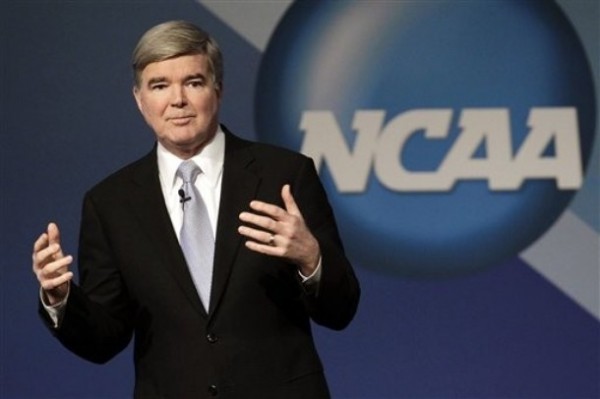NCAA Legislation Proposing New Recruiting Freedoms Will Create More Inequality
Posted by Chris Johnson on August 28th, 2012Chris Johnson is an RTC columnist. He can be reached @ChrisDJohnsonn.
Every year the NCAA spends copious amounts of time monitoring secondary recruiting violations and doling out corresponding punishments to guilty programs. There are so many menial rule specifications within the organization’s 400-page rulebook and so many different ways to violate those specifications that recruiting has become a walking-on-eggshells process for most programs, with the fear of breaching protocol clouding every conversation, letter and official visit. This is a huge burden for coaches who, more than anything else, are just trying to run their teams in the most successful way possible without getting hung up in minor NCAA rule violations. When basic conversation between coach and prospect carries punitive repercussions, the formula needs wholesale upgrading. The angst and dismay over minor violations isn’t just a coach-player phenomenon. It affects the NCAA and the considerable investigatory work it must do to ensure its legislative scruples are enforced properly. There is a constant game played between coaches unwittingly violating protocol and the NCAA staff policing and dispensing punishment for those violations. Neither side is happy with their current state and yet the cumbersome violation-punishment cycle continues undeterred.

The proposed rule could radically alter the way major programs recruit players, particularly in football and men’s basketball (Photo credit: Darron Cummings/AP Photo).
The violations come in different forms, from impermissible contact with prospects to an overflow of text messages to providing bagels with cream cheese. Chief among NCAA recruiting no-no’s is the illegal use of program personnel outside of the designated coaching circle to contact prospective recruits. Only head coaches and assistant coaches can seek out, evaluate, and contact prospects. It’s a hard-line rule with severe implications: Very few members of each team’s staff are legally permitted to participate in the year-round recruiting process. As the distinction between coach and staff blurs with growing program personnel groups and the recruiting process demands a larger base of scouting resources, monitoring these sorts of violations has become an extremely frustrating process. The NCAA is downright exhausted, and it’s not hard to see why. A rule change is in the works to relieve the violation police work, according to Steve Yanda of the Washington Post, who on Saturday reported that the NCAA Rules Working Group has endorsed legislation that would eliminate the rule limiting recruiting matters to head and assistant coaches. The rule – which, if voted into approval, could go into effect as early as August 2013 – would allow “staff members now known as directors of operations or directors of player personnel to watch film of a prospect or to contact a prospect’s coach or guardian.” The man-to-man aspect of recruiting – official and unofficial campus visits, attending tournaments and events, and so on – would still be off-limits to anyone not considered by job title a head or assistant coach.












































